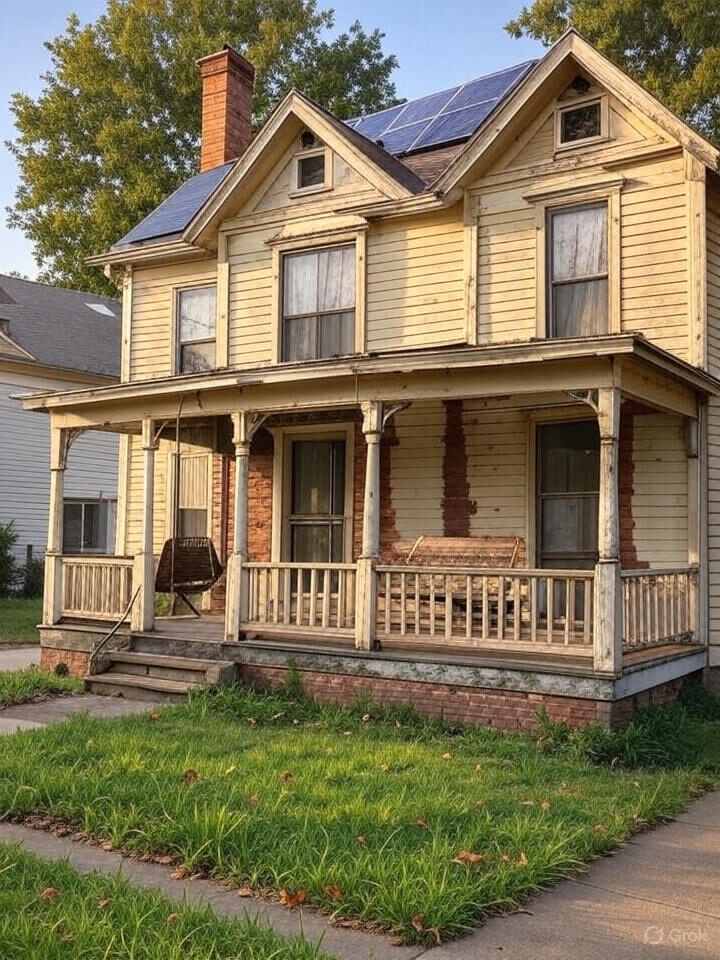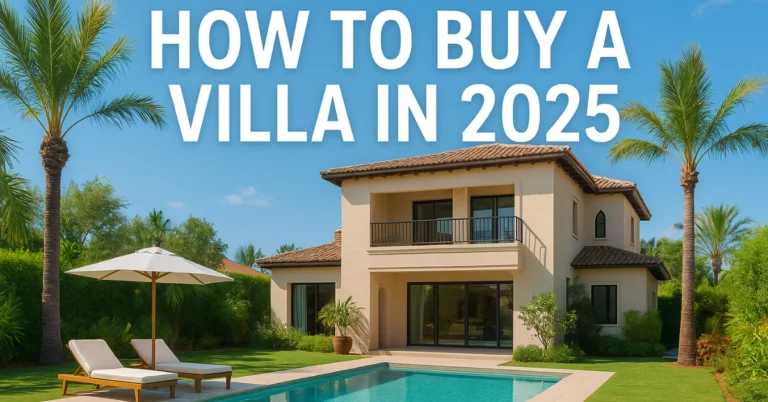Top High-End Real Estate Brokers 2025: Expert Guide
If you’re eyeing those multimillion-dollar homes, a high-end real estate broker can make all the difference. In this guide, we’ll discuss who these pros are, what’s happening in the luxury market right now, and how to pick a high-end real estate broker that fits your life. Whether you’re a buyer hunting for that dream spot or a seller ready to cash in, let’s walk through it together.
Key Takeaways
- High-end real estate brokers focus on pricey properties, helping wealthy folks with custom services in a market that’s picking up speed.
- Big names like Sotheby’s and Christie’s lead the pack, handling billions in deals each year with cool tech like virtual tours.
- New agents hit roadblocks getting into the high-end real estate brokers’ world, but smart steps like certifications and connections can open doors, easing issues like steep fees and shaky markets.
- What counts as “high-end” changes by area—think $1 million in some places, $10 million in cities like New York—fueled by younger rich buyers and rule changes.
- Picking the best high-end real estate brokers means checking their track record, network, and tech skills to handle slow sales and keep things private.
What Is a High-End Broker?
Imagine: You’re standing in a massive home with ocean views, but you need someone who knows how to seal the deal without fuss. That’s where a high-end real estate broker steps in. These folks aren’t your average agents—they specialize in luxury spots that cost a fortune, making sure everything goes smoothly for people with big bank accounts.
Core Responsibilities
High-end real estate brokers handle the whole process of buying or selling top-tier homes. They set up private viewings, haggle over prices for those multimillion-dollar listings, and even link you up with lawyers for tricky deals. It’s all about making things personal, like a concierge service for real estate.
Take Alexa Lambert at Compass—she’s closed over $1 billion in sales by using smart tech and her wide contacts. As a top high-end real estate broker, she turns what could be a stressful hunt into something straightforward.
Key Qualifications
To be good at this, high-end real estate brokers need solid credentials. Many have special training, like the NAR Luxury Homes Certification, and they’ve sold homes worth at least $9 million before joining fancy firms. They stay on top of things like green building trends or how working from home changes what buyers want.
Luxury agents often get deals done at about 98% of the asking price. That’s from 2024 data by Redfin, showing how a skilled high-end real estate broker pays off.
Current Luxury Market Trends
The luxury home world is buzzing these days. With more young, wealthy people jumping in, things are heating up. Let’s look at what’s driving it and how it varies around the globe.
Rising Demand Drivers
Younger folks, like affluent millennials, are behind most of the action—about 80% of it, according to RBC. They’re after homes with smart tech and big spaces for remote work. In Toronto, sales of homes over $4 million jumped 157% from last year, thanks to a ton of new money pouring in—over $205 billion in deposits.
Brokers are using tools like virtual reality tours to show off properties, which helps high-end real estate brokers stand out in a fast-moving market.
Regional Variations
What “high-end” means depends on where you are. In the Midwest, it might start at $1 million, but in New York City, you’re looking at $10 million or more. Ultra-luxury spots like those take four times longer to sell than regular homes, per Pacaso’s 2024 numbers. Places like the UAE and UK push for super-personal touches for their rich clients. But watch out for rules like foreign buyer taxes—they’re cutting down on available homes in spots like Vancouver, where sales still rose 41%. If you’re buying abroad, a high-end real estate broker who knows these quirks can save you time and money.
One gap in a lot of articles is how these policies have shifted in 2025, like extended taxes that make supply even tighter. That’s something to keep in mind if you’re planning a move with a high-end real estate broker.
Top High-End Brokerages
When it comes to the best in the business, a few names stand out. These firms have the reach and know-how to handle global deals. Let’s break down the leaders and how they stack up.
Leading Firms Ranked
Sotheby’s International Realty tops many lists with $143 billion in global sales back in 2023. They’re great at connecting buyers worldwide and use tech like VR to make showings easy, making them a go-to high-end real estate broker. Christie’s International Real Estate has racked up $500 billion in deals over the last five years, often through auctions for one-of-a-kind homes.
Then there’s Compass, where agents like Alexa pull in $1 billion each in sales. They shine with modern marketing that gets properties noticed fast, a hallmark of a top high-end real estate broker.
Strengths and Comparisons
Compare Berkshire Hathaway to Keller Williams: Berkshire has a special luxury group with huge networks, while Keller offers training that’s top-notch for agents. Coldwell Banker moves $288 million in luxury sales every day, making them a solid pick for quick transactions.
Think of Greenwood King in Houston—they’ve closed over $1 billion a year since 2012 by keeping things small and focused on clients. If you’re in a specific city, a local high-end real estate broker like that might beat a big global firm for personal touch.
How to Choose a Broker
Finding the right high-end real estate broker is like picking a trusted advisor. You want someone who gets your needs. Here’s how to do it without guesswork.
Evaluation Criteria
Start by looking at their past sales and what clients say. A good high-end real estate broker has a strong network for private deals and keeps things quiet for high-net-worth clients. Tools like HomeLight can match you based on real data from past deals.
Don’t skip checking their tech skills—things like AI for pricing homes right can make a big difference when working with a high-end real estate broker.
Addressing Pain Points
Homes in this price range can sit on the market for 44 days on average, longer than usual. Pick a high-end real estate broker who’s great at marketing to the right crowd to speed things up. For costs, haggle those commissions down from 1.5% to 3%—it could save you $50,000 on a $10 million home.
Compared to regular agents, luxury ones handle extras like taxes and global rules. If you’re facing supply shortages, a high-end real estate broker can tap into off-market listings that others miss.
Tip: Ask for references from past clients in your price range to see if they fixed similar issues.
Challenges in High-End Real Estate
No market is perfect, and luxury real estate has its bumps. Buyers, sellers, and agents all deal with them. But knowing what they are helps you prepare.
Common Hurdles
Supply is low because many owners aren’t selling—think older folks staying put. Add in high taxes, like 8-10% on land transfers, and costs pile up. For agents, getting into top firms as a high-end real estate broker means paying monthly fees and dealing with picky recruiters if you lack big sales.
On Reddit, folks talk about how it’s tough for newbies without a track record, calling it more hype than help sometimes.
Solutions and Tips
For buyers, look for loans geared toward big-ticket homes and high-end real estate brokers who know how to dodge policy snags like those foreign taxes. Sellers, try professional staging and lean on your broker’s private contacts to move things faster. Ultra-luxury homes take four times as long to sell, says Pacaso. A tip: Focus on trends like green features to attract buyers quickly with a high-end real estate broker.
Tips for Aspiring Brokers
Dreaming of joining the high-end real estate broker world? It’s doable, but it takes planning. Many hit walls, but here’s how to push through.
Entry Pathways
Get your license first, then rack up sales in everyday homes to build cred. Go for accreditations from groups like the Luxury Home Council. Networking at events for wealthy clients is key—it’s how many break in as a high-end real estate broker without a huge resume.
One story from online forums: A new agent got their foot in the door by shadowing at Compass, turning referrals into their first big sale.
Building Success
Carve out a niche, like helping affluent millennial luxury buyers with tech-savvy homes. Use free reports from places like Sotheby’s to stay sharp on trends. Compared to regular brokers, this field needs world knowledge but pays better. Tip: Avoid high-competition spots; focus on underserved areas like “high-end real estate broker challenges 2025” for your edge. Apply these insights to navigate the luxury real estate landscape effectively, whether buying, selling, or starting a career—connect with a top high-end real estate broker today for personalized guidance.
FAQs
- What is a high-end real estate broker? A specialist in luxury properties worth $1M+, handling sales for high-net-worth clients with services like private viewings and global networking. They ensure discretion and maximize value.
- What are the top luxury real estate brokerages? Leading firms include Sotheby’s ($143B sales), Christie’s ($500B over 5 years), and Compass (top agents at $1B volume). They offer premium marketing and international reach.
- How much do luxury real estate brokers earn? Commissions range from 1.5 to 3% on multimillion-dollar deals, potentially earning six figures per transaction. Top agents close $1B+ annually, per 2023 data from Compass.
- How to become a high-end real estate broker? Obtain licenses, gain experience in standard sales, pursue certifications like NAR Luxury, and join teams at elite firms. Networking is key for entry without an extensive history. (29 words)
- What qualifies as high-end real estate? Properties starting at $1M-$2 regionally, up to $10M+ in hotspots like NYC. Features include bespoke designs, prime locations, and amenities for affluent buyers.
- What challenges do luxury brokers face? High entry barriers, longer sale times (44 days avg.), supply shortages, and policy hurdles like taxes. Aspiring agents need proven sales for top firms.







